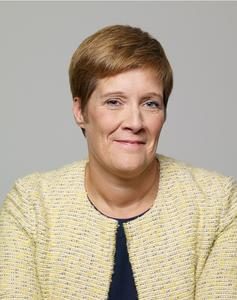Narrowing the skills gap across the North

Two thirds of secondary schools teaching the most disadvantaged pupils in the country who make the slowest educational progress are in the North, according to a new report.
White working-class boys “entrenched in poverty” are most at risk of falling behind, and need targeted interventions from government to tackle their lack of attainment, according to the Northern Powerhouse Partnership (NPP).
The NPP is calling for an extra £1bn a year from the education budget for the most disadvantaged children and young people in the North.
It also wants to set up a Northern Schools Board with the power to take over failing academy chains and to scale up existing ones.
The NPP research follows earlier work last year which also claimed too many children in the North are falling behind other parts of the UK, leading to a serious skills shortage for employers.
That study was described as a “wake-up call” to everyone involved in education and skills in realising how far the North is behind the rest of the UK.
The authors also spoke of the need for businesses across the North to play a much bigger role in providing meaningful experience of work for young people.
Other statistics have been equally damning. They include figures which revealed just 33% of people across the ‘Northern Powerhouse’ have a degree-level qualification, compared with 61% in the nation’s capital.
Closing the gap is seen as vital to efforts to boost the region’s productivity and rebalance the national economy. And has led to calls for the full devolution of both skills powers and funding.
Commenting on the secondary school divide, Cllr Judith Blake, Leeds City Council leader, said: “Inclusive growth means we must do everything possible to share the benefits of our future success, including to stop young people from disadvantaged areas – notably white working-class estates – being left behind.
“The powers we need over education, including a Northern Schools Board and the capacity to better fund those schools with biggest challenges, is as important an investment as any road or railway.
“We need it all to be able to fulfil the North’s potential and drive our ambitions for those growing up in cities like mine today.”
Liverpool City Region mayor Steve Rotheram helped to launch a ‘Skills for the North Campaign’ last summer. He said: “We are getting left behind. The skills gap between the North and South is one of the biggest challenges facing us now and for future generations.
“The North is full of talent and ingenuity and can be a global leader in the fourth industrial revolution but we will miss out on this opportunity if we do not close the gap on skills.”
Rotheram, a former apprentice bricklayer himself, said having central government in control of strategy and the purse-strings, was simply not working. He added: “You can’t have a local industrial strategy unless you have a local skills strategy. The two go together.”
As well as giving those skills powers and funds to metro mayors and combined authorities, the campaigns is looking to make the North a “global leader” for higher and degree level apprenticeships.

Henri Murison
Henri Murison, NPP director, said there is much more work to do around skills, particularly around people currently in the workplace who need the “right support” to be able to take on new higher-skilled jobs being created.
He said there has been “some progress” on devolving the skills agenda, pointing to Greater Manchester getting more powers over adult skills.
Murison added: “The North has some large skills deficits, even in areas we are strong in. The challenge is how we can be prepared for the next industrial revolution and the highly skilled jobs that are going to emerge.”
Education is another issue that needs attention, he adds: “As we have more high-skilled jobs we need every young person to get their opportunity. There has to be focus on improving educational standards in the most challenging areas.”
Matthew Lewis, head of Squire Patton Bogg’s Leeds-based employment practice, says the North’s skills agenda can’t stand as a “separate strategy.”

Matthew Lewis, partner at Squire Patton Boggs
He added: “The criticism in the past has been that business and education are not talking enough with each other.
“There needs to engagement. I know there has been some of that, discussions around things such as promoting STEM skills.
“There needs to be a better focus and that has to go from schools all the way through to further education.”
He adds: “It is about what business needs as well as what universities, institutions and apprenticeships are delivering.”
Lewis said that universities had to do more to equip graduates with the skills they need in the workplace. He also believes there will be a shift to more practical courses as they look at their funding futures.

Nicola Quayle
He added: “They need to look at what businesses are crying out for, the practical skills, and what they can offer. They need to link up with local businesses and ask them what they are missing.”
Nicola Quayle, office senior partner at KPMG, also says employers are looking for people leaving education to be “work ready” and equipped with practical skills.
She said: “We hear employers crying out for the more practical skills, so that people don’t just come out of school full of theory.”








